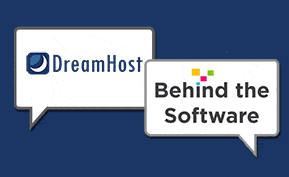Cloud Hosting
Verizon Directs Cloud Service Towards SMBs
Yesterday, Verizon, the wireless telecommunications company, announced that its most recent pay-as-you-go cloud computing solution, Computing as a Service (CaaS) SMB, is aimed at small and medium businesses (SMBs). CaaS was initially introduced last year, as Verizon worked on the solution along with major cloud companies Vmware and Terremark. This new on demand version is ideal for smaller companies who cannot afford to pay for everything at once.
Verizon’s latest cloud service is intended for companies in retail, manufacturing, professional services, application development and web-based businesses. Companies in theses fields who cannot afford big fancy solutions or who just do not have enough internet technology resources should look into Verizon’s scaled down cloud package.
There are many advantages of Verizon’s CaaS in comparison to other cloud services, according to the wireless carrier company. Verizon’s cloud service has many advanced security features, such as virtual private networks (VPNs). Companies can add specific security features to accommodate their specific needs.
Carrie Gray, the Verizon Business’ executive director of medium business, commented. She said, “We are bringing the power of a high-performance, secure cloud environment to our small-business customers to meet their specific need for on-demand computing resources. This new offering will help SMBs tap cloud technology to be more agile, productive, and cost effective, so they can better compete in today’s global economy without having to build and maintain a high-capital, high-maintenance infrastructure to meet their IT needs.”
This cloud solution is perfect for SMBs because it is economical and flexible. The system is secure and there are many innovative features of Verizon’s CaaS. These features include a web-based console, server cloning, no minimum commitment, hardware load balancing, adaptation to a number of operating systems, up to 16 GB of RAM per virtual server, up to 7 TB of storage per virtual server and more.
Want to access more information on top industry trends and news? Browse our complete collection of software news by visiting the News & Trends section of the Business-Software.com blog.
[Photo courtesy of assisdent.]





